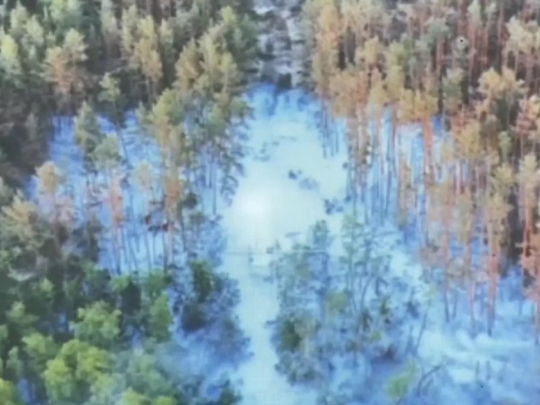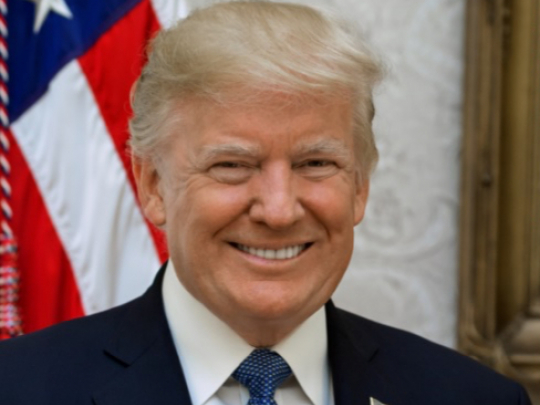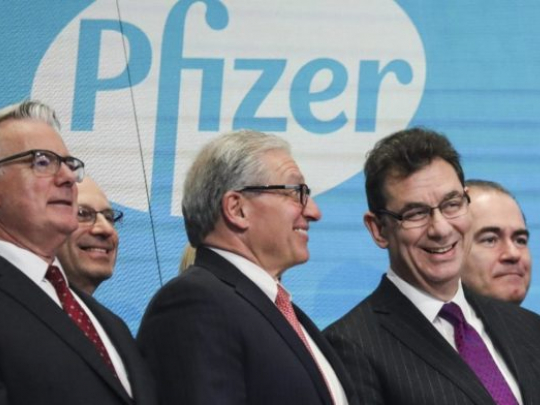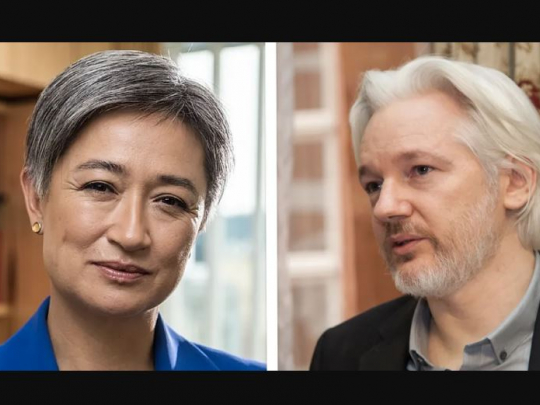Does North Korea Need Nukes to Deter US Aggression?
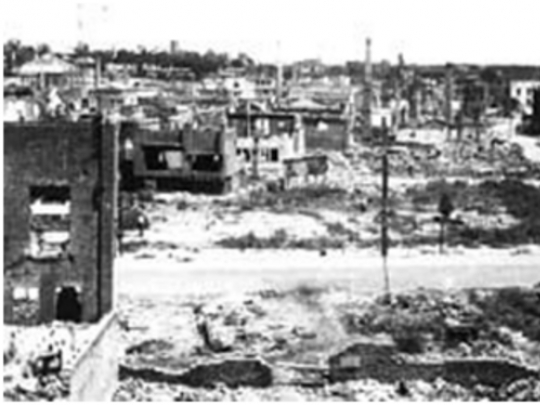
Here’s your U.S. foreign policy quiz for the day:
Question 1– How many governments has the United States overthrown or tried to overthrow since the Second World War?
Answer: 57 (See William Blum.)
Question 2– How many of those governments had nuclear weapons?
Answer— 0
Does that mean North Korea needs nuclear weapons to deter US aggression?
Yes and no. Yes, nuclear weapons are a credible deterrent but, no, that’s not why North Korea set off a hydrogen bomb last Tuesday. The reason North Korea detonated the bomb was to force the Obama administration to sit up and take notice. That’s what this is all about. North Korea’s supreme leader, Kim Jong Un, wants the US to realize that they’re going to pay a heavy price for avoiding direct negotiations. In other words, Kim is trying to pressure Obama back to the bargaining table.
Unfortunately, Washington isn’t listening. They see the North as a threat to regional security and have decided that additional sanctions and isolation are the best remedies. The Obama administration thinks they have the whole matter under control and don’t need to be flexible or compromise which is why they are opting for sticks over carrots. In fact, Obama has refused to conduct any bilateral talks with the North unless the North agrees beforehand to abandon its nuclear weapons programs altogether and allow weapons inspectors to examine all their nuclear facilities. This is a non-starter for the DPRK. They see their nuclear weapons program as their “ace in the hole”, their only chance to end persistent US hostility.
Now if we separate the “hydrogen bomb” incident from the longer historic narrative dating back to the Korean War, it’s possible to twist the facts in a way that makes the North look like the “bad guy”, but that’s simply not the case. In fact, the reason the world is facing these problems today is because of US adventurism in the past. Just as ISIS emerged from he embers of the Iraq War, so too, nuclear proliferation on the Korean peninsula is a direct result of failed US foreign policy in the ’50s.
US involvement in the Korean War precluded a final settlement, which means the war never really ended. An armistice agreement that was signed on July 27, 1953, ended the hostilities, but a “final peaceful settlement” was never achieved, so the nation remains divided today. The reason that matters is because the US still has 15 military bases in South Korea, 28,000 combat troops, and enough artillery and missiles to blow the entire country to smithereens. The US presence in South Korea effectively prevents the reunification of the country and a final conclusion to the war unless it is entirely on Washington’s terms. Bottom line: Even though the cannons have stopped firing, the war drags on, thanks in large part to the ongoing US occupation.
So how can the North normalize relations with the US if Washington won’t talk to them and, at the same time, insists that the North abandon the weapons program that is their only source of leverage? Maybe they should do an about-face, meet Washington’s demands, and hope that by extending the olive branch relations will gradually improve. But how can that possibly work, after all, Washington wants regime change so it can install a US puppet that will help create another capitalist dystopia for its corporate friends. Isn’t that the way US interventions usually turn out? That’s not compromise, it’s suicide.
And there’s another thing too: The leadership in Pyongyang knows who they’re dealing with which is why they’ve taken the hardline. They know the US doesn’t respond to weakness, only strength. That’s why they can’t cave in on the nukes project. It’s their only hope. Either the US stands down and makes concessions or the stalemate continues. Those are the only two possible outcomes.
It’s worth noting, that before Syria, Libya, Iraq, Nicaragua, El Salvador, Vietnam and the long catalogue of US bloodbaths across the decades, there was the Korean War. Americans have swept it under the rug, but every Korean, North and South, knows what happened and how it ended. Here’s a short refresher that explains why the North is still wary of the US 63 years after the armistice was signed. The excerpt is from an article titled “Americans have forgotten what we did to North Korea”, at Vox World:
“In the early 1950s, during the Korean War, the US dropped more bombs on North Korea than it had dropped in the entire Pacific theater during World War II. This carpet bombing, which included 32,000 tons of napalm, often deliberately targeted civilian as well as military targets, devastating the country far beyond what was necessary to fight the war. Whole cities were destroyed, with many thousands of innocent civilians killed and many more left homeless and hungry….
According to US journalist Blaine Harden…
“Over a period of three years or so, we killed off — what — 20 percent of the population,” Air Force Gen. Curtis LeMay, head of the Strategic Air Command during the Korean War,told the Office of Air Force History in 1984. Dean Rusk, a supporter of the war and later secretary of state, said the United States bombed “everything that moved in North Korea, every brick standing on top of another.” After running low on urban targets, U.S. bombers destroyed hydroelectric and irrigation dams in the later stages of the war, flooding farmland and destroying crops……
You can glimpse both the humanitarian and political consequences in an alarmed diplomatic cable that North Korea’s foreign minister sent to the United Nations… in January 1951:
“On January 3 at 10:30 AM an armada of 82 flying fortresses loosed their death-dealing load on the city of Pyongyang …Hundreds of tons of bombs and incendiary compound were simultaneously dropped throughout the city, causing annihilating fires, the transatlantic barbarians bombed the city with delayed-action high-explosive bombs which exploded at intervals for a whole day making it impossible for the people to come out onto the streets. The entire city has now been burning, enveloped in flames, for two days. By the second day, 7,812 civilians houses had been burnt down. The Americans were well aware that there were no military targets left in Pyongyang….
The number of inhabitants of Pyongyang killed by bomb splinters, burnt alive and suffocated by smoke is incalculable…Some 50,000 inhabitants remain in the city which before the war had a population of 500,000.”
(“Americans have forgotten what we did to North Korea“, Vox World)
Get the picture? When it became clear that the US was not going to win the war, they decided to teach “those rotten Commies” a lesson they’d never forget. They reduced the entire North to smoldering rubble condemning the people to decades of starvation and poverty. That’s how Washington fights its wars: “Kill ’em all and let God sort it out.”
This is why the North is building nukes instead making concessions; it’s because Washington is bent on either victory or annihilation.
So what does North Korea want from the United States?
The North wants what it’s always wanted. It wants the US to stop its regime change operations, honor its obligations under the 1994 Agreed Framework, and sign a non aggression pact. That’s all they want, an end to the constant hectoring, lecturing and interference. Is that too much to ask? Here’s how Jimmy Carter summed it up in a Washington Post op-ed (November 24, 2010):
“Pyongyang has sent a consistent message that during direct talks with the United States, it is ready to conclude an agreement to end its nuclear programs, put them all under IAEA inspection and conclude a permanent peace treaty to replace the ‘temporary’ cease-fire of 1953. We should consider responding to this offer. The unfortunate alternative is for North Koreans to take whatever actions they consider necessary to defend themselves from what they claim to fear most: a military attack supported by the United States, along with efforts to change the political regime.” (“North Korea’s consistent message to the U.S.”, President Jimmy Carter, Washington Post)
There it is in black and white. The US can end the conflict today by just meeting its obligations under the terms of the Agreed Framework and by agreeing that it will not attack North Korea in the future. The path to nuclear disarmament has never been easier, but the chances of Obama taking that road are slim at best.
- Source : Mike Whitney




